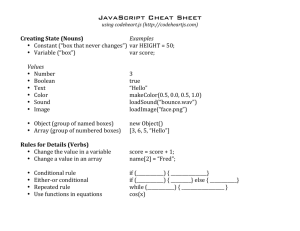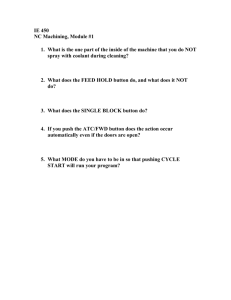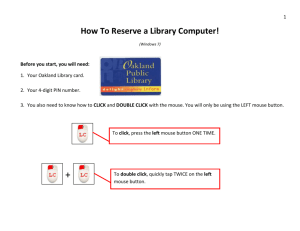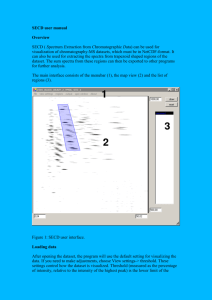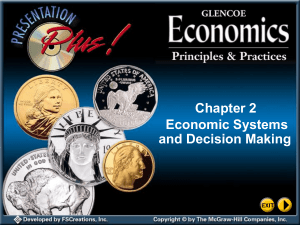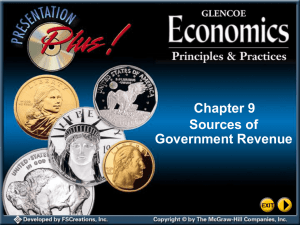Restricting International Trade
advertisement
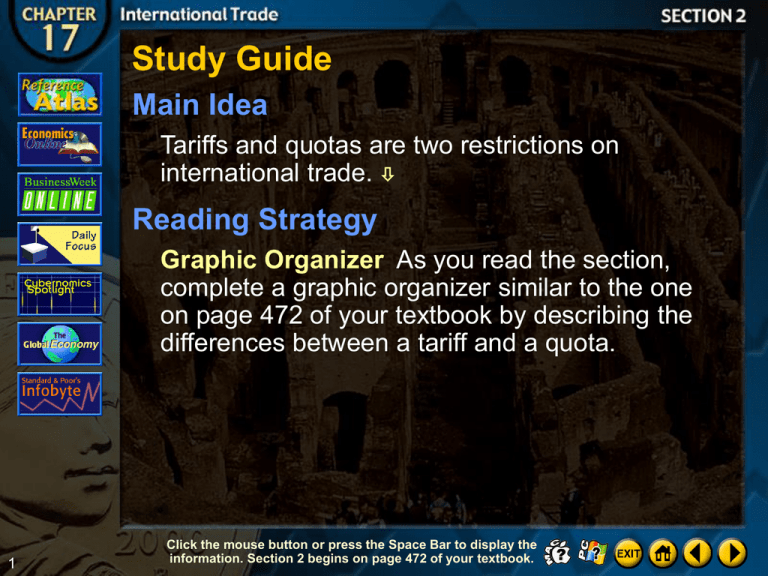
Study Guide Main Idea Tariffs and quotas are two restrictions on international trade. Reading Strategy Graphic Organizer As you read the section, complete a graphic organizer similar to the one on page 472 of your textbook by describing the differences between a tariff and a quota. 1 Click the mouse button or press the Space Bar to display the information. Section 2 begins on page 472 of your textbook. Study Guide (cont.) Objectives After studying this section, you will be able to: – Explain how international trade can be restricted to protect special interests. – Cite the main argument used in support of protection. – Relate the history of the free trade movement. Applying Economic Concepts Quotas Do you think the prices of some goods are too high? How can international trade help keep some prices low? Click the Speaker button to listen to the Cover Story. 2 Click the mouse button or press the Space Bar to display the information. Section 2 begins on page 472 of your textbook. Introduction • Although international trade can bring many benefits, some people object to it because it can displace selected industries and groups of workers in the United States. • The European ban on American hormonetreated beef is just one example of attempts to restrict trade. 3 Click the mouse button or press the Space Bar to display the information. Restricting International Trade • Two major ways of restricting trade are through a tariff, or tax placed on imports, and a quota, a limit on the quantities of a product that can be imported. • A protective tariff is one that is high enough to protect less efficient domestic industries. • A revenue tariff is one high enough to generate revenue. 4 Click the mouse button or press the Space Bar to display the information. Restricting International Trade (cont.) • Most quotas are used to reduce the supply of a product and keep prices high for domestic producers. • Other barriers to trade include overly rigorous health inspections and difficult licensing requirements. 5 Click the mouse button or press the Space Bar to display the information. Arguments for Protection • Protectionists are people who favor trade barriers that protect domestic industries and offer various arguments to defend their position. • According to one argument, a country could become so specialized that it would end up being dependent enough on other countries that it would affect national defense. • The infant-industries argument is the belief that new industries should be protected from foreign competition. 6 Click the mouse button or press the Space Bar to display the information. Arguments for Protection (cont.) • Some argue that tariffs and quotas protect domestic jobs form cheap foreign labor. • The argument for keeping the money at home claims that limiting imports will keep American money in the United States. • The balance of payments argument suggests that protection would keep down the difference between the money a country pays to and what it receives from other nations. 7 Click the mouse button or press the Space Bar to display the information. The Free Trade Movement • Trade barriers work only if other countries do not retaliate, causing all countries to suffer. • Restrictive legislation in the past nearly halted international trade. • Various trade agreements have allowed countries to reduce tariffs in cooperation with other nations. • The World Trade Organization (WTO) and the North American Free Trade Agreement (NAFTA) are examples of international agencies for promoting freer trade. 8 Click the mouse button or press the Space Bar to display the information. Section Close What are the benefits and costs of NAFTA? 9 Click the mouse button to return to the Contents slide.
